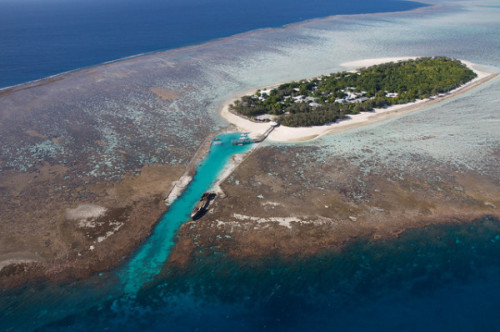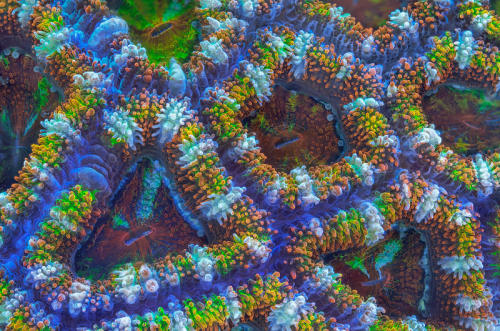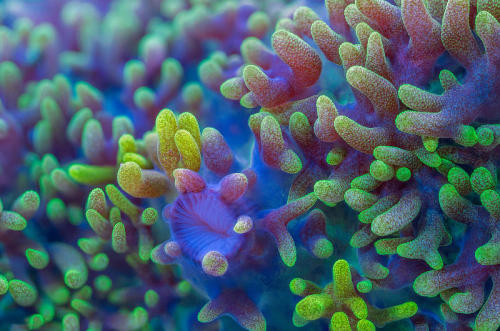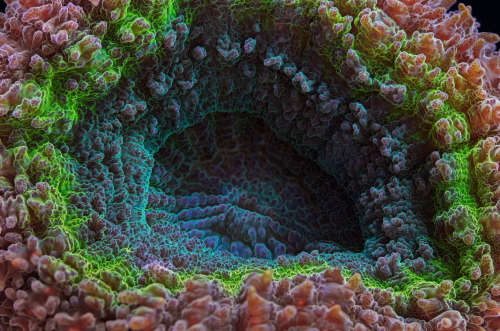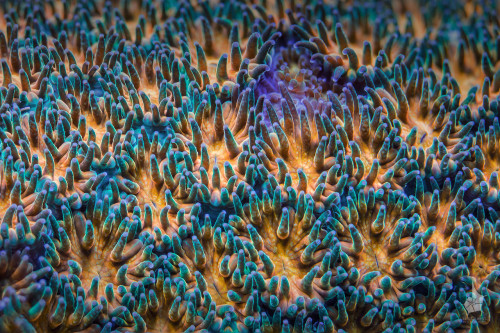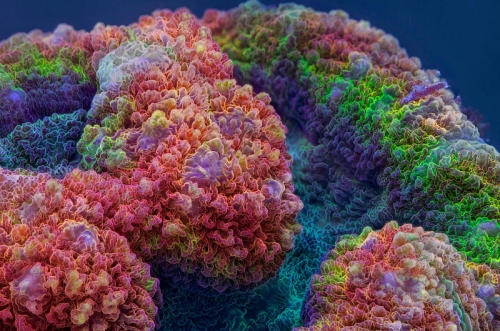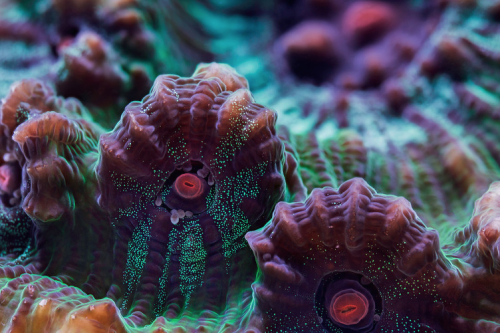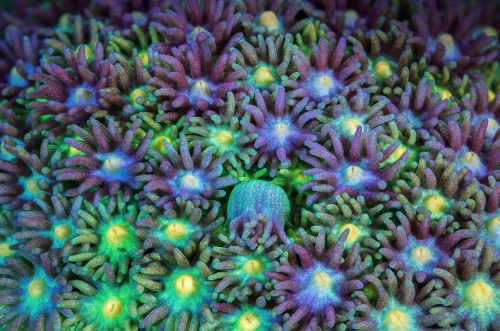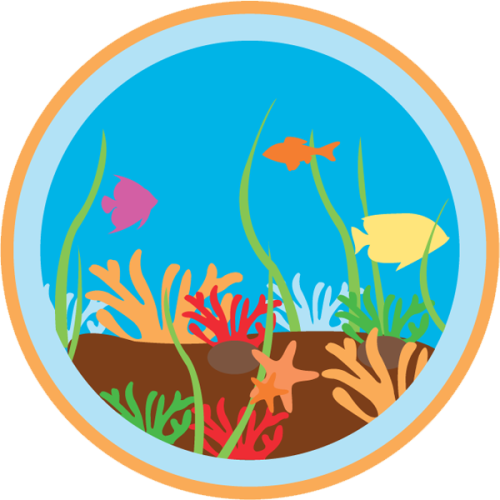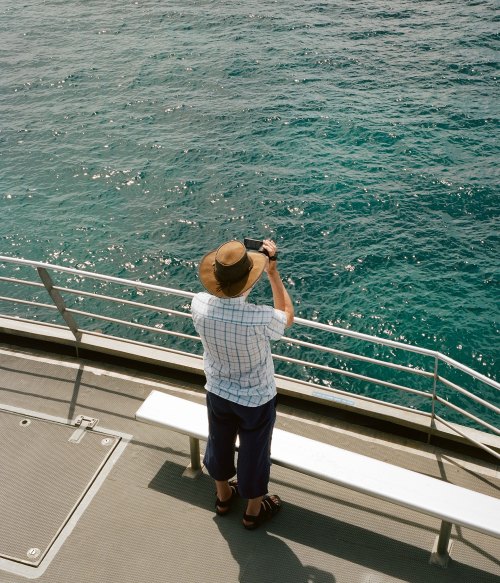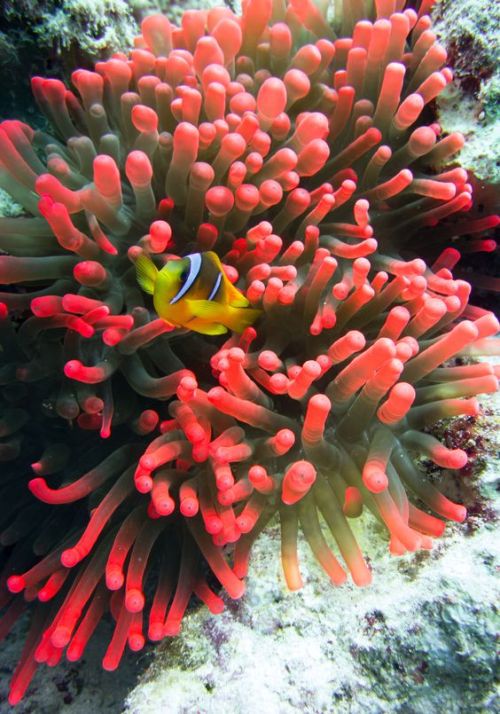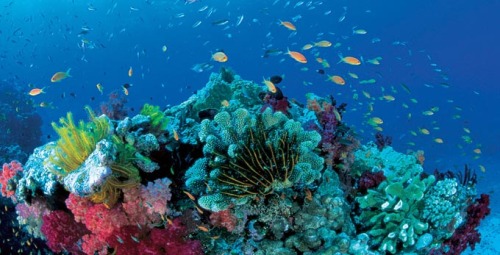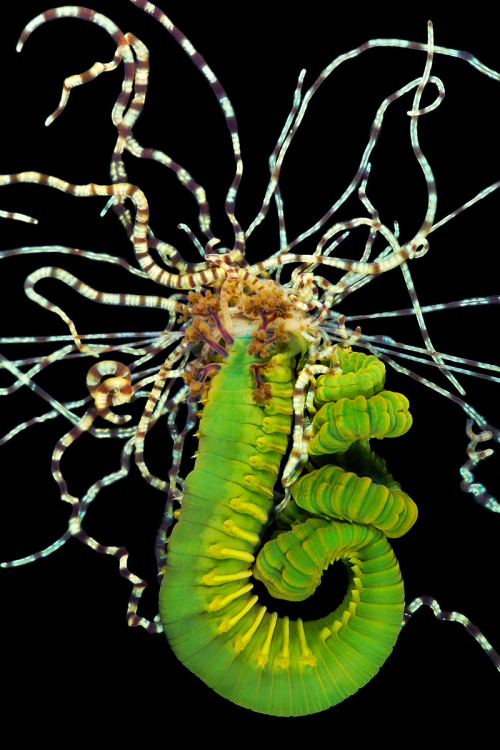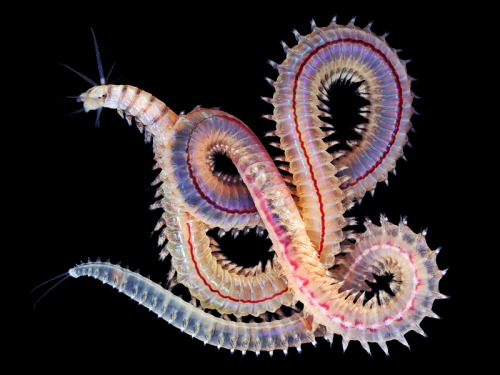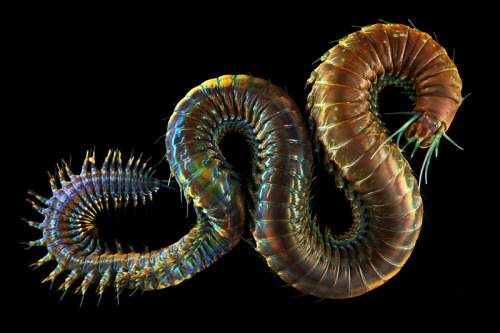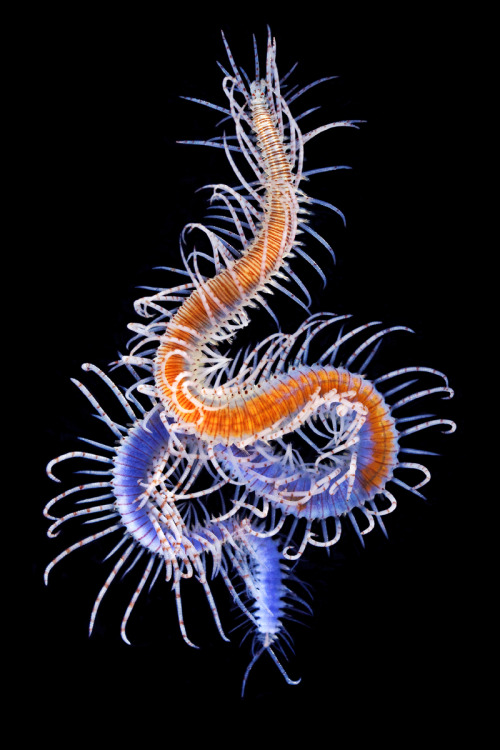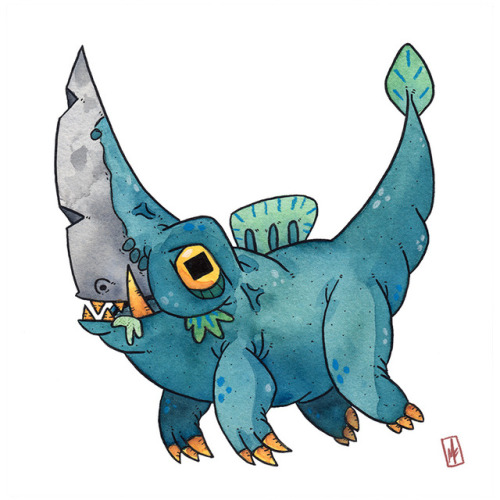#great barrier reef
Is action on climate change the only sure way to preserve the world’s coral reefs?
The majority of coral reefs around the world are not only threatened by global warming. Agriculture effluents such as pesticides, overfishing, untreated sewage, and siltation due to deforestation all contribute to the serious degradation of coral reefs such as the Great Barrier Reef of Australia.
The latest Food for Thought articlefromICES Journal of Marine Science explores building up resilience and adaption of social-ecological systems of coral reefs, by drastically reducing local stressors.
Post link
daniel stoupin, a doctoral candidate in marine biology at the university of queensland, has photographed a variety of coral species from the great barrier reef using full spectrum light to reveal fluorescent pigments that would otherwise be invisible to the naked eye. (see more at bioquest studios)
coral growth rates in the great barrier reef have plummeted 40 percent in the last 40 years, a result, according to a recent study, of increased ocean acidification. since the beginning of the industrial revolution, about one third of the carbon dioxide that has been released into the atmosphere as a result of fossil fuels has been absorbed by the oceans, where it in turn prevents coral from using a mineral called aragonite to make their calcified skeletons.
newmodelling has also shown that if ocean waters continue to warm by even one degree, which most now see as unstoppable, the coverage of corals on the great barrier reef could decline to less than 10 percent, which is a level too low for the reef to mount a recovery.
further complicating matters for the coral is the plastic detritus left by humans which now litter the oceans and which the coral now consume. unable to expel the plastic bits and thus take in nutrients, the coral slowly starve. a recent study found that each square kilometre of australia’s sea surface water is contaminated with approximately 4,000 pieces of tiny plastic.
These uniquely lit corals caught our eye, and the fact that we might lose them.
Erosion of the Great Barrier Reef tells a story of how our environment is changing at an unprecedented rate. Read more about how one of the most diverse (and beautiful) marine ecosystems is threatened by climate change.
Post link

1. Two thirds of the Great Barrier Reef is now bleached; recovery is possible but very unlikely
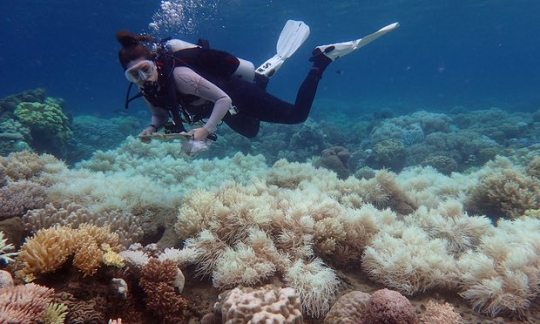
2. Inventor of the internet gets the Nobel prize of computing decades later as we are now using quantum computers in search algorithms for the first time
3. Graphene-oxide sieve filters sea water and can hopefully be scale-able
4. NASA’s new plan for getting humans to Mars: Phase 1 (a lunar space station) will resupply and refuel Phase 2 (a deep space transport)

5. Crowd-sourcing helped narrow down the search for Planet 9
6. Here’s a nice video showing how Cassini will crash in to Saturn this year
7. 23andMe, gene testing company, wins back the right to tell you your risk factors for certain diseases rather than just your heritage (likely leading to wild misinterpretation by most consumers)
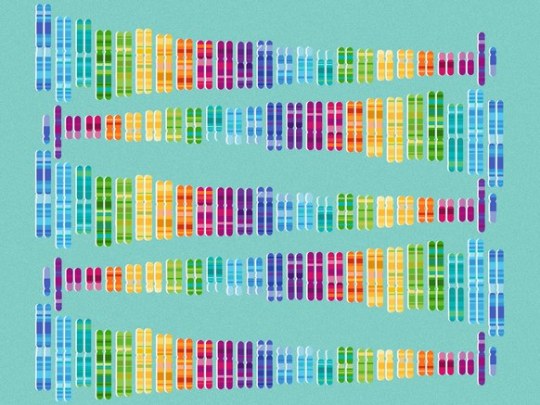
8. More evidence supporting how early exposure to antibiotics affects gut microbiota and behavior
9. Low-Calorie sweeteners possibly promote fat accumulation by up-regulating receptors in fat tissue (caution: very small study)
10. Scientists drive sperm to deliver cancer-fighting drugs

11. New supercomputer model of the TRAPPIST-1 system estimate that only one of the planets is likely habitable
12. Alan Alda hopes to make jargon-spewing scientists better communicators
13. Look at this crazy photo of Blue Jet Lightning
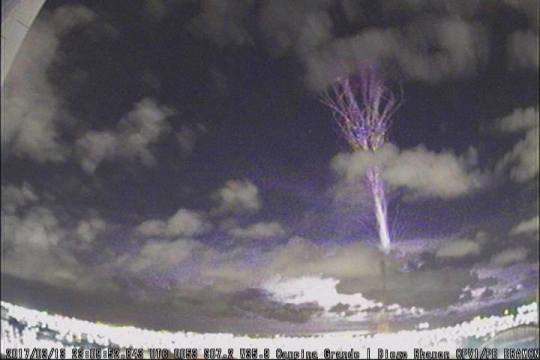
14. Republicans continue to ignore basic science in favor or re-election and risk causing measles outbreaks
15. The Kingfisher is so fucking cool, here it is in slow-mo breaching the waters with a live fish in it’s throat
16. Octopus and squid evolve differently than most organisms
“Unlike most animal species, whose genomes are riddled with millions of years of mutations that have helped them adapt to a volatile world, cephalopod adaption appears to have been more a result of RNA editing. Heavy reliance on RNA editing, however it first evolved, practically would have guaranteed the need for cephalopod DNA to remain fairly stable over millennia.”
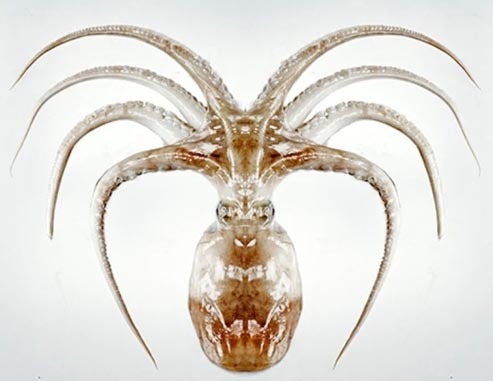
17. Just create an antibody for the bacterial-toxin associated with acne and blamo, acne vaccine…maybe
18. The ESO just discovered this firework display created by stars colliding
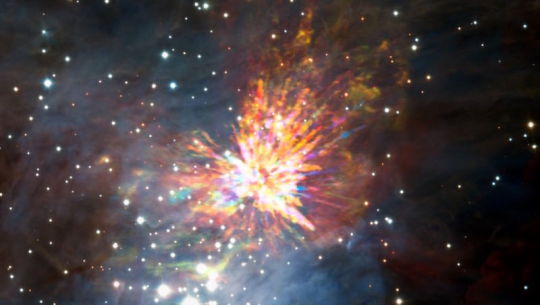
19. And for your weekly dose of pseudoscience bullshit, here is a sheep placenta face-mask
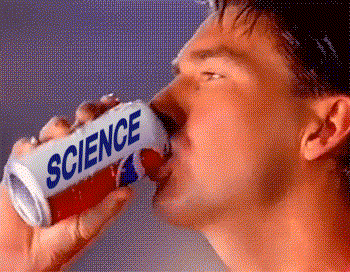
Lifescouts: Great Barrier Reef Badge
If you have this badge, reblog it and share your story;
If not, go and write your story :)
Get the Lifescouts app on iOS!
Lifescouts is a badge-collecting community of people who share their real-world experiences online.
Post link
Route Collective had our first exhibition last month. I’d recently come back from an awesome months trip to the other side of planet Earth, so I thought i’d show some pictures from over there.
I was pretty stoked with how they turned out, so I submitted them to Stay Young for Issue Five.
Submissions are still open so swing them an email with some of your photos.
P.s - my dad built that house! (nice one dad.)
Post link

Breathe…

Brie Larson on the Great Barrier Reef
THE GREAT BARRIER REEF is one of the planet’s most famous natural wonders, stretching across 348,000sq.km and comprised of more than 2900 separate reefs. But disturbing new research reveals it has lost half its coral cover since 1985.
The study from the Australian Institute of Marine Science (AIMS), published today in the US journal theProceedings of the National Academy of Sciences, provides a dim view of the reef’s future.
“Coral cover on the GBR is consistently declining, and without intervention, it will likely fall to 5 to 10 per cent within the next 10 years,” say the authors of the report. “Without intervention, the GBR may lose the biodiversity and ecological integrity for which it was listed as a World Heritage Area.”
Post link
Newly Discovered Deep Sea Worms Unknown to Science
Scientist and marine researcher Alexander Semenov, recently released a number of incredible new photographs of worms, several of which may be completely unknown to science.
Half of the photos were taken near the Great Barrier Reef in Australia during a 2-week conference on marine worms called polychaetes. Semenov photographed 222 different worm species which are now in the process of being studied and documented by scientists.
The other half of the photos were taken during Semenov’s normal course of work at the White Sea Biological Station in northern Russia where he’s head of the scientific divers team.
Post link
For World Reef Day, William Saville Kent’s stunning 19th-century illustrations from the world’s first pictorial encyclopedia about the Great Barrier Reef.
Post link


